My Rainbow and Trinity Neal’s “Rainbow” Wig
Items of significance to Wilmington resident Trinity Neal’s experience as a transgender girl.
2016-2020,
Wilmington, DE
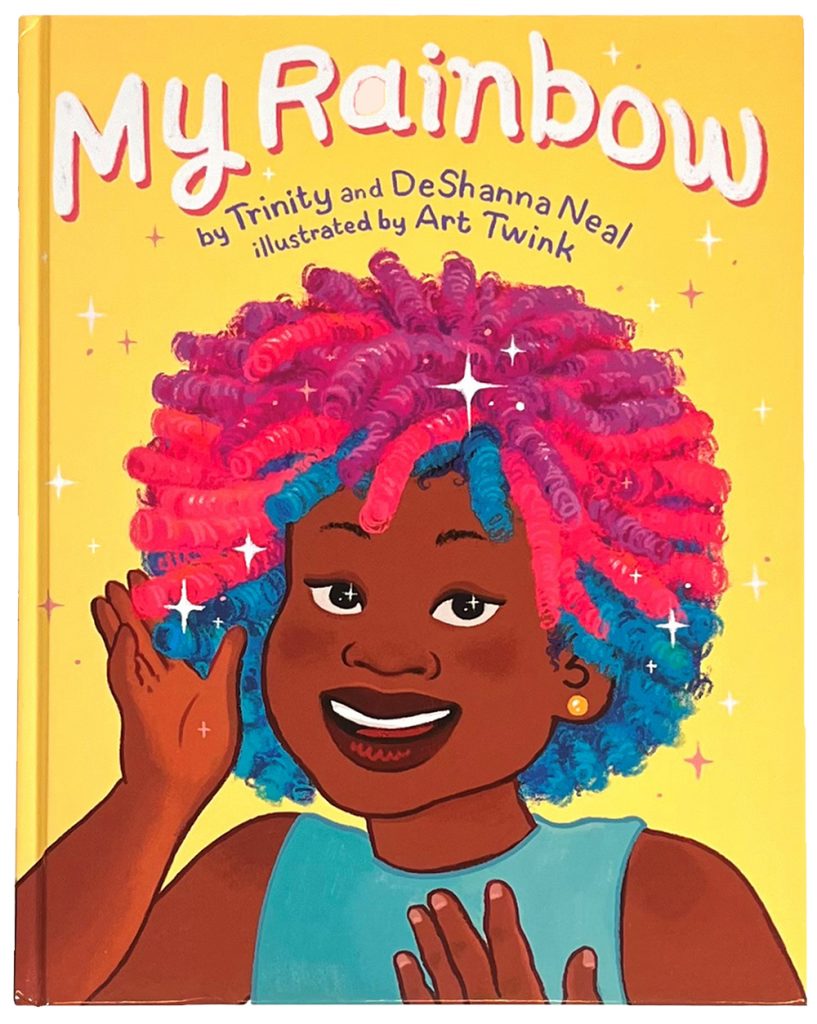
My Rainbow is a children’s book written by Delaware mother-daughter duo, DeShanna and Trinity Neal. The book follows the story of how Trinity, a young transgender girl, got her first wig. In 2022, the Neal family donated the handmade wig and a signed copy of their book to the Delaware Division of Historical and Cultural Affairs. These objects represent Trinity Neal living as her true self, and her mother’s tireless efforts to raise awareness for transgender rights and access to gender-affirming healthcare in Delaware.
Wilmington, Delaware, resident Trinity Neal knew she was a girl when she was four years old, but as she grew into her true identity, antiquated and bigoted attitudes in the medical community and health insurance obstacles almost blocked her from receiving life-saving healthcare. With the help of her mother, DeShanna Neal, the mother-daughter duo has paved the way for other Delaware residents to get the gender-affirming care they need.
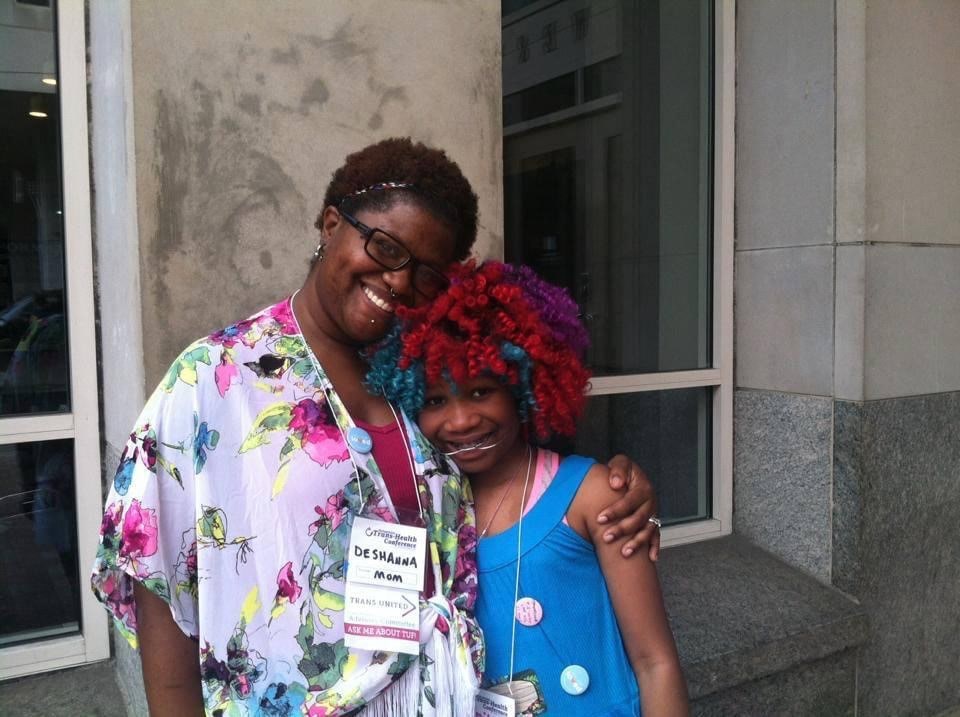
Trinity Neal, born in 2003, was assigned male at birth, but began embracing her feminine identity at a young age, wearing makeup and her mom’s wigs, as well as other girl’s fashion items. She is the oldest of four children, and at home was a happy child who enjoyed playing with her siblings. But in school, she was socialized as a boy, which led to her experiencing extreme depression that caused her to withdraw from family and friends. At a time before resources about transgender people were readily available, DeShanna Neal recalled consulting the internet and doctors for help. In a 2021 oral history interview with Researcher Carolanne Deal, Trinity Neal recalled how doctors initially refused to help:
They just didn’t agree with it. They hated how I was acting. And they said, ‘You’re supposed to be a boy, not this.’…So, Mom was like, ‘No, this is not how it’s gonna be like. We are gonna make our daughter happy.’ So she went to the other therapist, who was actually helping people like me, that was her job. But she did [psychotherapy] for adults, so I was the first minor to go in there. And she actually helped.
Trinity Neal’s mother is a nonbinary, disabled activist born in 1984. They grew up in Wilmington, Delaware, where they still live, as of Summer 2023, with their four children.

After consulting a psychiatrist and other childcare professionals, Trinity Neal was diagnosed with “gender identity disorder,” now known as gender dysphoria, which is a form of psychological distress that is “a marked incongruence between one’s expressed gender and the gender assigned at birth (natal gender), which may be apparently by behaviors or preferences consistent with the non-natal gender.”
Trinity Neal’s therapist advised her mother to “choose between a happy little girl or a dead little boy,” because suicide is the leading cause of death for transgender youth. They chose their daughter and have been supporting and advocating for Trinity Neal since that moment.
The family’s hardships remained private until 2015 when, in response to Trinity Neal approaching puberty, her doctor prescribed puberty blockers, but coverage for the medication was denied by Medicaid, the family’s insurance provider. This began the Neals’s public battle to get their daughter access to lifesaving, gender-affirming medical care.
DeShanna Neal appealed the insurance’s decision to deny coverage and, through a laborious process, sent letters to then-Governor Jack Markell, the director of Medicaid, the state Insurance Commissioner, and state health officials, citing the denial as a violation of Section 1557 of the Affordable Care Act, which prohibits denying care on the basis of gender identity. After eight months of appeals, in 2015, Medicaid finally agreed to cover Trinity Neal’s puberty blockers. Trinity Neal became the first transgender child in Delaware to have Medicaid cover their gender-affirming care. The victory also set a precedent for other low-income transgender youth in Delaware. Trinity Neal was also the first minor to petition the county court and successfully change her gender marker on her birth certificate to female in 2017. In response to these successful outcomes, she said, “it suits me, I’m finally here.”

In 2016, Trinity Neal expressed to her mother that she wanted long hair “like her dolls.” DeShanna Neal and their son Lucien Neal (b. 2004), went to the beauty supply store to find a wig for Trinity Neal. When none of the wigs fit quite right-Trinity Neal also is autistic and has sensory sensitivities-DeShanna Neal decided to make one instead. They knew the perfect wig would play a key role in helping Trinity Neal feel her best as she entered this new stage in life.

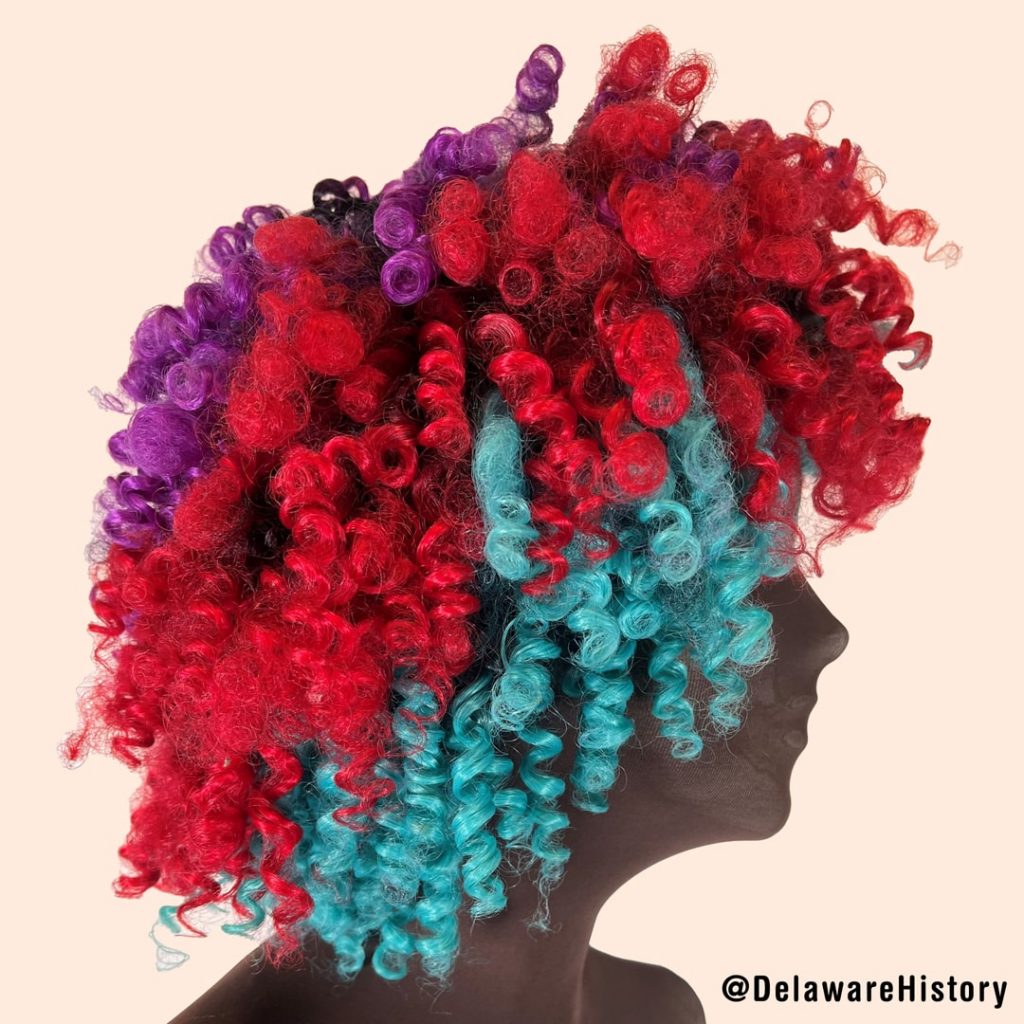
To create the custom wig, DeShanna Neal collected bundles of curly hair to reflect her daughter’s natural Black hair texture. Lucien Neal selected teal, purple, and dark pink strands of hair to make “a wig as colorful and vibrant” as his sister. DeShanna Neal watched online instructional videos and made the wig by hand for their daughter. Starting with a wig cap, they threaded the teal, purple, and pink hair into the cap, row by row, until the entire wig was full of colorful coils. The next day, Trinity Neal tried on the wig and was thrilled.

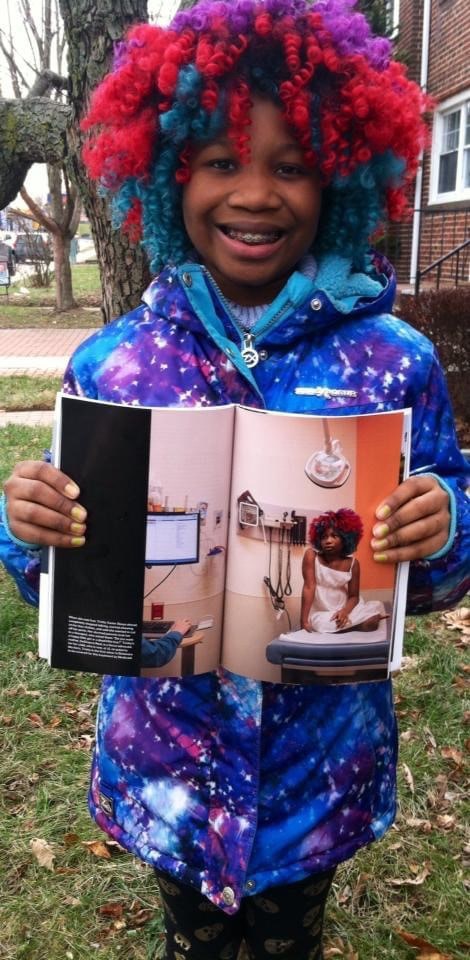
Trinity Neal not only wore the wig in photoshoots for national publications like National Geographic and ESSENCE, but she also made the story of her wig the subject of My Rainbow, a children’s book she co-authored with her mother. My Rainbow is illustrated by Art Twink, a queer artist of color who worked collaboratively with the family on the front covers of the book, published in 2020 by Penguin Random House. The book chronicles the true story of how Trinity Neal received her first wig, and the text serves as a celebration of “showing up as our full selves with the people who see us fully,” as the dust jacket description states. Twink’s artwork here shows Trinity Neal with a rainbow floral headpiece, recalling transgender activist and LGBTQ+ advocate Marsha P. Johnson (1945-1992), who was known for her floral headpieces. Once the sleeve is removed, the book’s alternative cover pictures a more realistic rendering of the colorful wig.
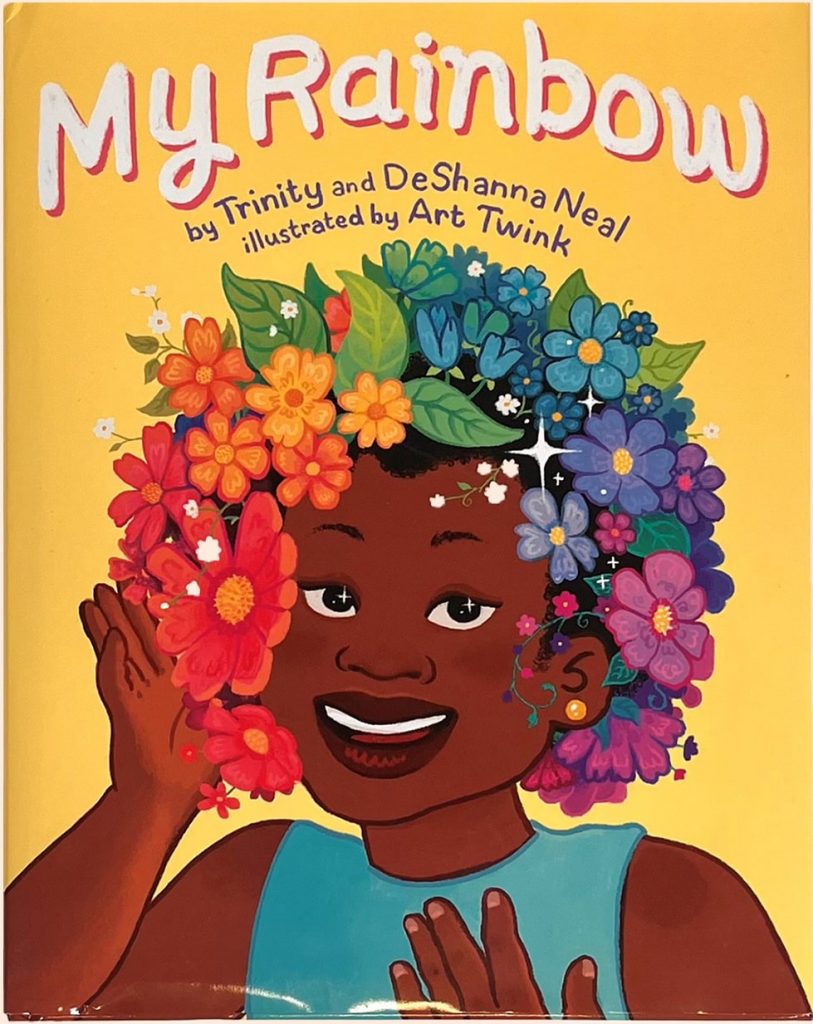

The story begins by describing a day in the life of the Neal family, comprised of mother DeShanna Neal and their children Trinity, Lucien, Hyperion, and Thane, as well as their pet pig, Peter Porker. The story continues, showing Trinity Neal playing dolls with her sister, Hyperion Neal. Trinity Neal then says, “I can’t be a girl,” because she does not have long hair like her dolls. Although DeShanna Neal shows their daughter that they are a woman with short hair, Trinity Neal continues to say that it’s different for her because she is a transgender girl.
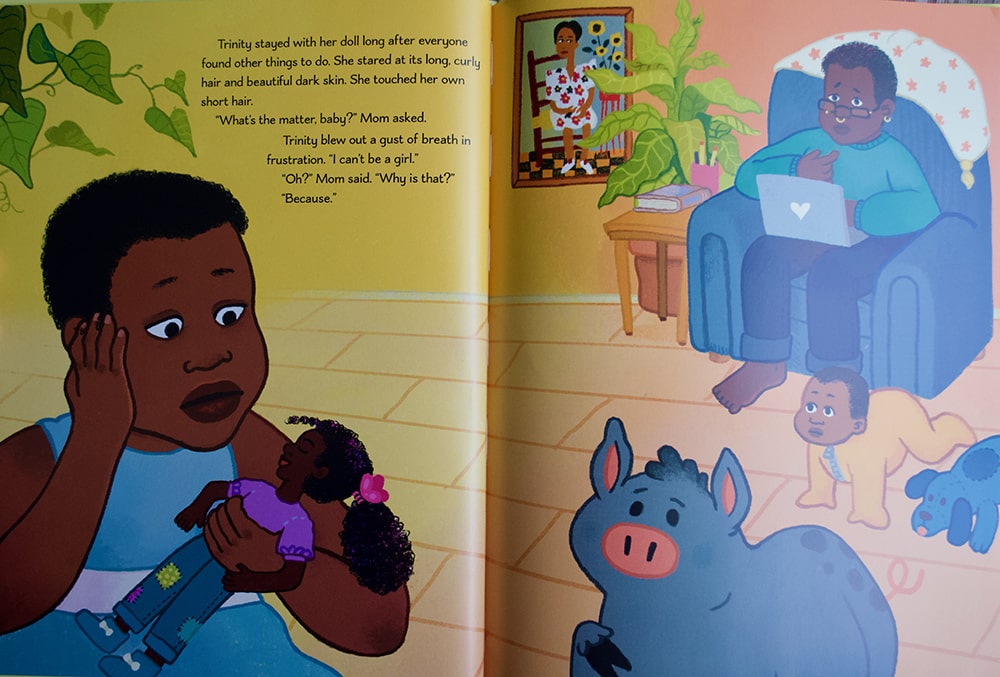
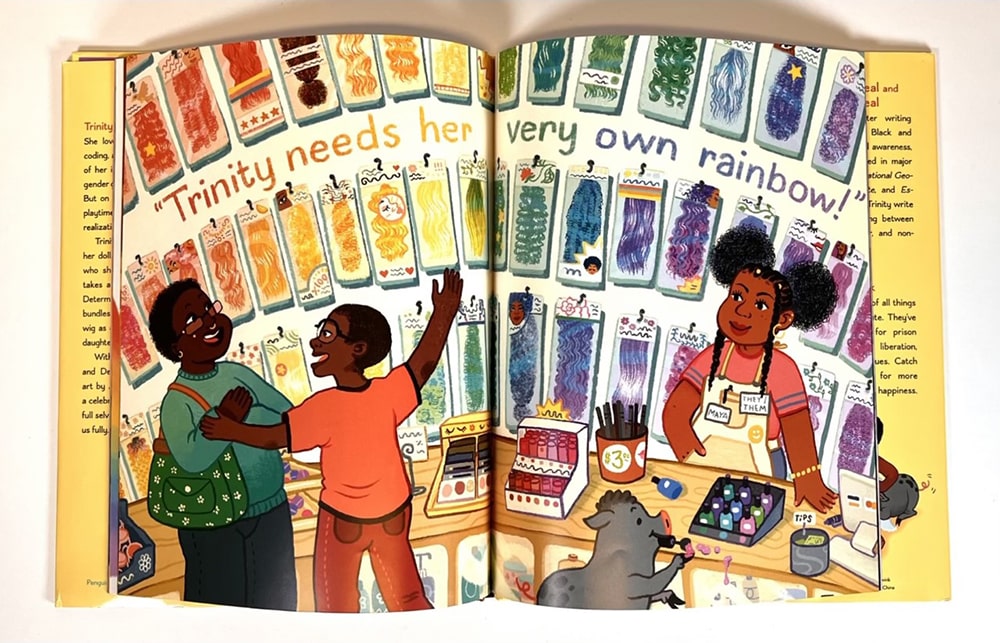
With beautiful illustrations, the book describes the joy Trinity Neal experienced when her mom presented her with the handmade rainbow-colored wig. As the story goes, DeShanna Neal wakes up to the sound of Trinity Neal crying tears of joy as she tries on the wig and loves it. Trinity Neal exclaims, “It’s me, Mom. My hair has finally come! Its my rainbow!” The story ends with the family celebrating Trinity Neal’s joy, and the last image of the book is Trinity Neal wearing her wig, surrounded by her family. When asked to summarize what My Rainbow is about, Trinity Neal said, “love and acceptance.”

Despite the book telling that story of love and acceptance, it has also been targeted in some areas of the country for being “inappropriate.” In October 2021, My Rainbow appeared on a list of 850 books proposed to be banned by a Republican Texas lawmaker. Additionally, according to DeShanna Neal, the book has been banned in parts of Florida, Texas, Georgia, and Ohio.
In a 2023 oral history interview with the Delaware Division of Historical and Cultural Affairs, DeShanna Neal reflected on how they feel about My Rainbow being banned in multiple parts of the country:
These books aren’t fiction, in most cases. This, our book, is not fiction. It is a true event that’s happened. And banning something like that is banning an actual lived experience. A lived experience that other children may have but never seen presented to them.
Despite the challenges the Neal family faced, DeShanna Neal decided to further step into the public spotlight and run for office, and was elected to the Delaware House of Representatives in 2022. They also came out as nonbinary in 2022, partly because they were inspired by their daughter to think more deeply about their gender.
As of Summer 2023, Trinity Neal was attending the Delaware College of Art and Design to study video game design.

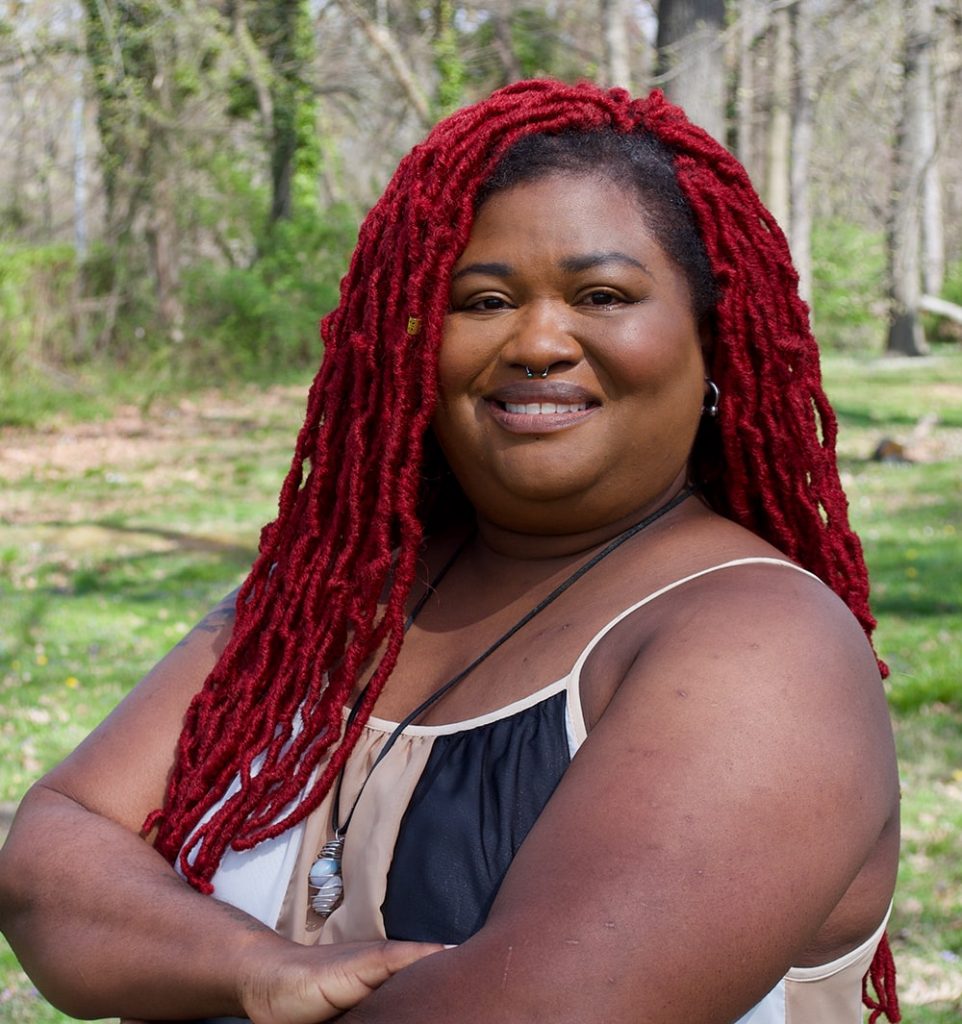
Photo Courtesy: Delaware Division of Historical and Cultural Affairs, DeShanna Neal, and Carolanne Deal
Sources:
- “Banned in the USA: State Laws Supercharge Book Suppression in Schools,” PEN America, website accessed 2023
- Chappell, Bill, “A Texas lawmaker is targeting 850 books that he says could make students feel uneasy,” NPR, October 28, 2021
- Garg, Garima; Elshimy, Ghada; Marwaha, Raman; “Gender Dysphoria,” National Library of Medicine, National Center for Biotechnology Information, last update October 16, 2022
- Fishman, Margie, “A child’s journey to ‘truegender’,” Delaware Online/The News Journal, May 4, 2017
- Fishman, Margie, “Transgender teen pushes boundaries to be ‘legal‘,” Delaware Online/The News Journal, May 5, 2017
- My Rainbow purchase page on Penguin Random House website
- Neal, DeShanna, “How This Black Mom Is Making a Better World for Her Trans Daughter,” The Advocate, May 10, 2016
- Pompilio, Natalie, “How One Woman Became an ‘Accidental Advocate’ for Transgender Rights,” Delaware Today, October 10, 2017
- Torchinsky, Rina, “These kids’ authors are telling the stories of trans youth. Book bans won’t stop them,” WAMU 88.5/NPR, March 31, 2022
Explore Other Authors
-
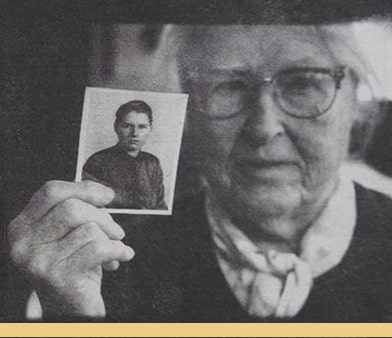
Lesbian novels by Sarah Aldridge
Sussex County, DE
Some of the first literary works that captured the experience of lesbians in a more realistic, loving light.


